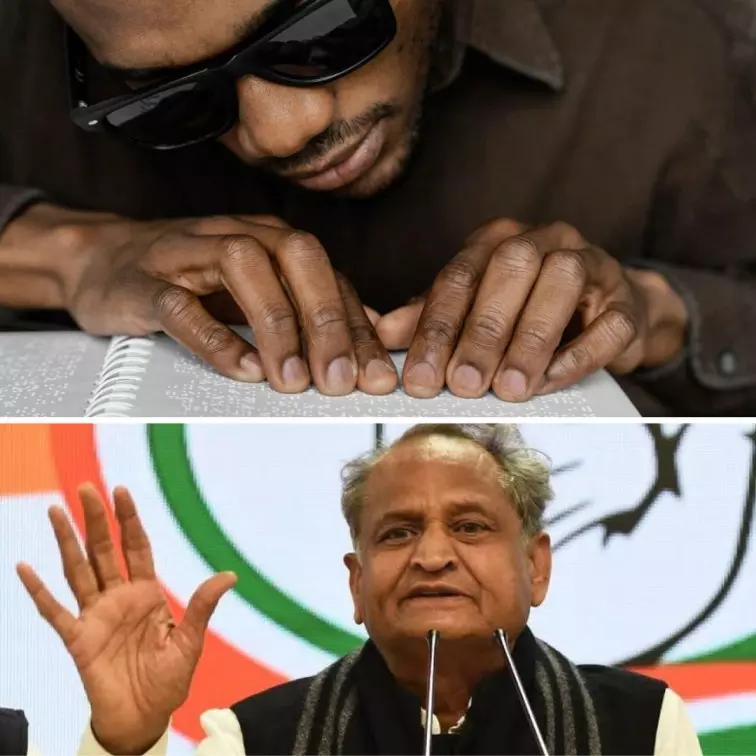
Image Credits: Freepik, The New Indian Express (Representational)
Right To Sight: Rajasthan Becomes First Indian State To Adopt Blindness Control Policy
Writer: Jayali Wavhal
She writes about gender issues, human interest, and environment.
Rajasthan, 15 Jan 2023 8:06 AM GMT
Editor : Shiva Chaudhary |
A post-graduate in Journalism and Mass Communication with relevant skills, specialising in content editing & writing. I believe in the precise dissemination of information based on facts to the public.
Creatives : Jayali Wavhal
She writes about gender issues, human interest, and environment.
The goal of the newly implemented policy is to improve the lives of the more than three lakh visually impaired residents of the state and bring down the prevalence rate of blindness from 1.1 per cent to 0.3 per cent.
A policy for controlling blindness with the goal of 'Right to Sight' has been put into place by the Rajasthan government under its 'Nirogi Rajasthan' scheme. With this initiative, Rajasthan has become the first state in the country to implement such a policy.
The policy paper for the prevention of blindness was published on Friday (January 13) by the Department of Medical and Health at the order of Chief Minister Ashok Gehlot.
Controlling Blindness & Reducing Its Prevalence
The goal of the newly implemented policy is to improve the lives of more than three lakh visually impaired residents of the state. It should be noted that the prevalence rate of blindness in the nation was 1.1 per cent in 2020. But through the state's new Blindness Control Policy, efforts would be made to lower it to a significant 0.3 per cent.
Additionally, Keratoplasty Centers (facilities that conduct plastic surgery on the cornea) and Eye Banks would be operated at government medical institutes across the state by the Rajasthan government as per the policy. Moreover, cornea collected by for-profit businesses and NGOs that receive financial support from the government must be given to government institutions first and then to private medical institutions, the policy dictates.
Aid From Private Institutions & NGOs
By cooperating with nonprofit organisations, trusts, hospitals, and other benevolent organisations active in this field, the districts will make efforts to end visual impairment. In this context, the state government will work closely with private organisations to run a widespread campaign for eye donation. Eye specialists, eye surgeons, graduate students, eye assistants, eye donation counsellors, and other professionals will receive specialised training.
A report by Business Standard states that according to Medical and Health Department Secretary Prithvi, this policy would organise public awareness campaigns and numerous technical development initiatives aimed at eradicating blindness.
 All section
All section














